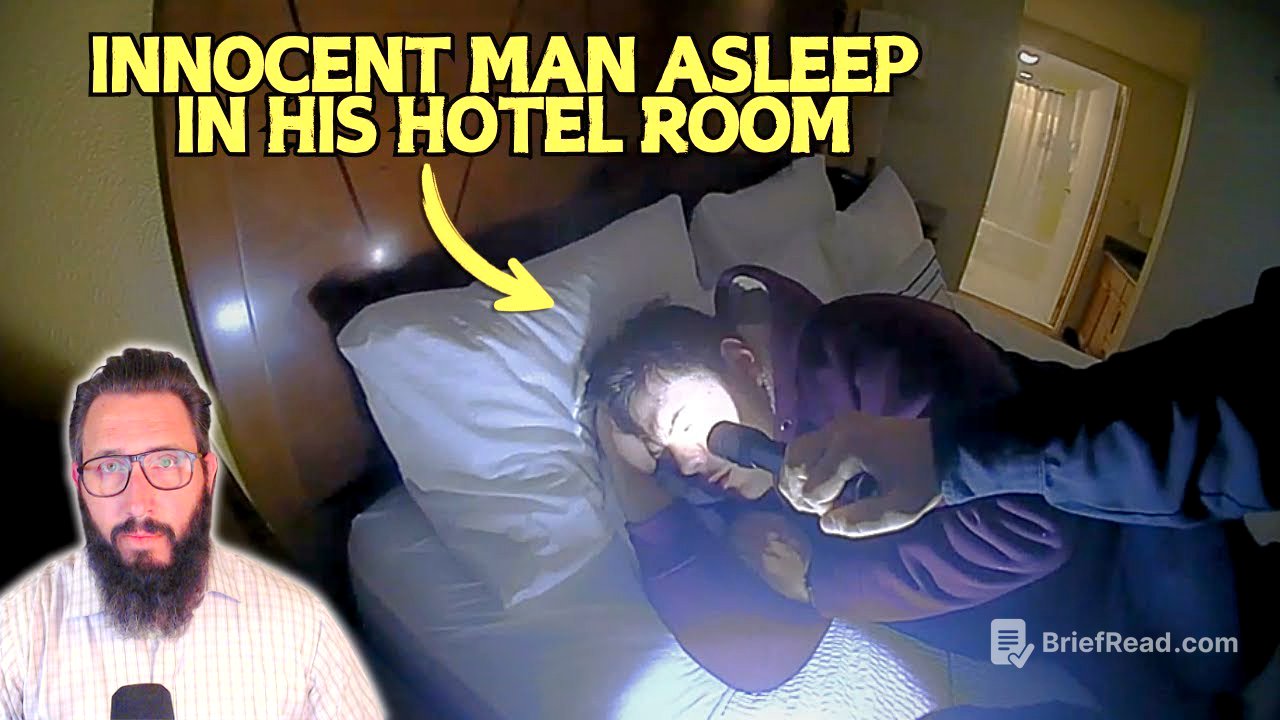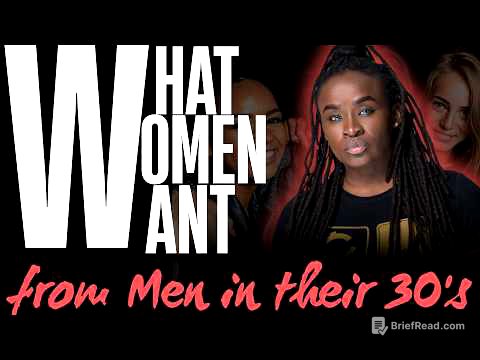TLDR;
This video presents never-before-seen body cam footage of a West Virginia deputy, Lance Caretsza, during an incident in 2018. The footage led to federal charges against Caretsza, though he was ultimately acquitted. The video analyzes the events, the legal proceedings, and the implications of the verdict, raising questions about police accountability and the justice system.
- The incident involved a disturbance at a hotel, leading to the arrest of Quinton Graciano.
- Deputy Caretsza was accused of using excessive force, including pepper spray, while Graciano was handcuffed.
- Despite video evidence and a judge's finding of sufficient evidence for conviction, the jury acquitted Caretsza.
- The video explores the legal standards for proving civil rights violations and the challenges of holding police officers accountable.
Intro [0:00]
The video introduces body cam footage of a West Virginia police officer that has never been seen publicly. The footage led to the federal indictment of the officer, but the jury found him not guilty. The presenter asks viewers to act as jurors and give their verdict after seeing the evidence.
Background of the Case [1:39]
The presenter received a hateful message from a family member of a West Virginia deputy he did a video on back in August of 2022, Lance Caretsza, who was arrested and indicted by the feds. The presenter couldn't show the body cam footage at the time because it was being used in the prosecution. After receiving the message, the presenter sent another request for the footage, which he received. The presenter asks viewers to watch the footage and decide whether the deputy was innocent or a victim of political prosecution. The incident occurred in Monongalia County, West Virginia, in January 2018. Deputy Lance Caretsza and six other officers responded to a disturbance at a hotel.
Initial Police Interaction [5:23]
Police officers are shown interacting with individuals in a hotel room, investigating a reported fight. The individuals deny any knowledge of a fight, but officers express suspicion due to their uncooperative behavior and the conflicting information. The officers try to determine who is staying in which room and whether anyone has a weapon.
Legality of Entering Hotel Rooms [10:00]
The video addresses the legality of police entering hotel rooms without a warrant, referencing the Fourth Amendment and the Supreme Court case Stoner versus California. A hotel guest has a reasonable expectation of privacy in their room. Hotel management cannot consent to a police search of a guest's room. Exceptions include the end of the rental period, eviction of the guest, exigent circumstances (immediate danger or destruction of evidence), or voluntary consent by the guest. In this case, the man was asleep and did not consent to anything.
Confrontation and Arrest [12:17]
The body cam footage shows Deputy Caretsza waking up Quinton Graciano, who was sleeping in a hotel room. The deputy's body cam shuts off at a crucial moment. The video then transitions to a summary of the federal judge's findings during the trial, detailing that Caretsza used force on Graciano after he was restrained in handcuffs. The judge found sufficient evidence to convict Caretsza, but the jury instructions required proof that he acted willfully with the specific intent to break the law.
Trial Testimony and Conflicting Accounts [16:31]
The video highlights conflicting accounts during the trial, particularly regarding the use of force and the deputy's intentions. Deputy Ethan Mongold's testimony is questioned, as he claimed to have no recollection of saying "give him the solution" in response to Caretsza, despite admitting that Graciano was handcuffed at the time. The video suggests that the other officers involved muddied the waters about whether or not Caretsza was completely ignorant that he was violating the Constitution.
Continued Confrontation and Aftermath [18:41]
The footage shows the continued confrontation, including the use of pepper spray on Graciano. The video also shows the aftermath of the incident, with officers discussing the situation and their actions. The internal investigation file included another officer's body cam footage that captured some of the aftermath.
Allegations of Lying and Falsifying Reports [22:19]
Deputy Caretsza was also charged with lying to the FBI and falsifying his report. The federal judge stated that a reasonable juror could find that Caretsza falsified his report by comparing the video evidence, witness testimony, and Caretsza's use of force report. Caretsza omitted the use of knee strikes and misrepresented the timing of the pepper spray deployment. The judge also noted that Caretsza marked himself as injured but never indicated he was.
Processing the Arrested Individuals [24:15]
The video shows the officers processing the arrested individuals, including Winston. The officers take pictures and fingerprints, and there is a tense exchange between Winston and one of the officers. The officers discuss Winston's behavior and the potential consequences of his actions.
Final Thoughts and Verdict [29:59]
The presenter expresses his shock and dismay at the body cam footage, calling the deputy's behavior "psychopathic." He notes that the prosecutor's office dismissed all charges, and a civil lawsuit settled for $175,000. The presenter questions how the jury could acquit the police officer and emphasizes the difficulty of holding police officers accountable. He concludes by stating that the officer is back on duty in Monongalia County, West Virginia, and asks viewers to share their verdict in the comments.









